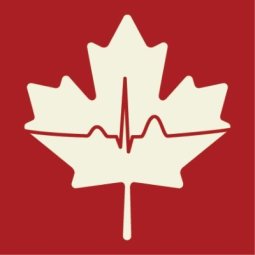McAlister CN, Ike I, Ahmed K
CMAJ, August 11, 2015, 187(11). CMAJ Podcast: author interview
Background
Cataract surgery is the most commonly performed medically necessary surgery in Canada. Beyond the publicly funded refractive correction, patients requiring this surgery are often advised by ophthalmologists (or their staff) of a number of optional “lifestyle” or “convenience” lenses, innovative diagnostic tests, and laser therapies. These optional lenses, tests, and services — provided at additional out-of-pocket cost to patients — may allow for enhanced vision beyond that experienced from cataract removal alone, and for the possibility of freedom from corrective lenses after surgery. Governments have not deemed these services to be medically necessary so they are not publicly-funded, in the same way that refractive correction with glasses, contact lenses, or laser refractive surgery is not publicly funded for people who do not have cataracts. These correction techniques are, however, performed at the same time as the publicly-insured surgery. This mix of public and private payment raises ethical considerations for ophthalmologists, and for other specialties in which noninsured private pay services are offered at the same time as publicly-insured services.
Methods
This is an evidence-based analysis of the ethical considerations for physicians who simultaneously provide insured medically necessary services and non-insured services.
Limitations
No methodological limitations apparent, other than the potential competing interests declared by one author. The article was peer reviewed.
Results
A mixed payment model — in which publicly-funded cataract surgery may be provided in parallel with non-insured cataract-related services funded out-of-pocket— raises ethical challenges relating to patient vulnerabilities, conflicts of interest, informed consent, transparency, and fairness. Especially for older patients, or those for whom accessing health care presents language, cultural, or financial barriers, the concept of combining insured and non-insured services can be confusing. Research on surgical innovation suggests that patients often perceive new technology to be inherently better, even in the absence of supportive evidence, and they may misunderstand the optional nature of non-insured services. Delegating the informed consent discussion to non-medical staff may not be appropriate. They may not fully appreciate patient vulnerabilities or the influence of value-based language on patient choices, such as “premium” to describe uninsured services or devices, or “old-fashioned” when describing those that are publicly-insured. It is the responsibility of physicians to ensure that patients truly understand their options. Ophthalmologists who offer noninsured services are often inherently in a position of financial conflict of interest. Such conflict includes that they may own the equipment used to provide non-insured tests, and/or have high overhead costs from running a private operating room. Physicians have an obligation to avoid conflict of duty and self-interest vis a vis the patient-physician relationship. Trust is the essence of this duty, and is especially important when the power imbalance increases patient vulnerabilities.
To inform patients about the dilemmas inherent in co-mingling insured and non-insured services, the authors, together with the Eye Physicians and Surgeons of Ontario, have developed an online patient handout. The goal is to empower patients and primary care providers with information that is transparent, accessible, and comprehensive.
Comment
Though this analysis is specific to ophthalmology, the ethical considerations of co-mingling publicly-insured services with those that are privately-funded are generalizable across medical specialties. Canadian Colleges of Physicians and Surgeons have developed policy statements on block fees and uninsured services, advising physicians to put the needs of patients first when resolving conflicts of interest inherent to the provision of non-insured services. Patients have the right to be informed of all options available, whether publicly or privately funded, but physicians and their staff should not misrepresent uninsured services as being medically necessary. Influencing patients by using biased value-based language is unethical. Publicly-insured health care across Canada is subjected to a rigorous evidence-informed process by which new devices and treatments are added to the repertoire of publicly-insured offerings. Just as physicians have a responsibility to inform patients of all options in an unbiased manner, governments have an obligation to evaluate new technologies and treatments in a timely manner, and to publicly fund those for which evidence demonstrates clear benefit. Where uninsured non-medically necessary services benefit the physicians’ financial bottom line, extreme caution must be exercised to ensure not only that patients are not harmed, but that they truly benefit.
